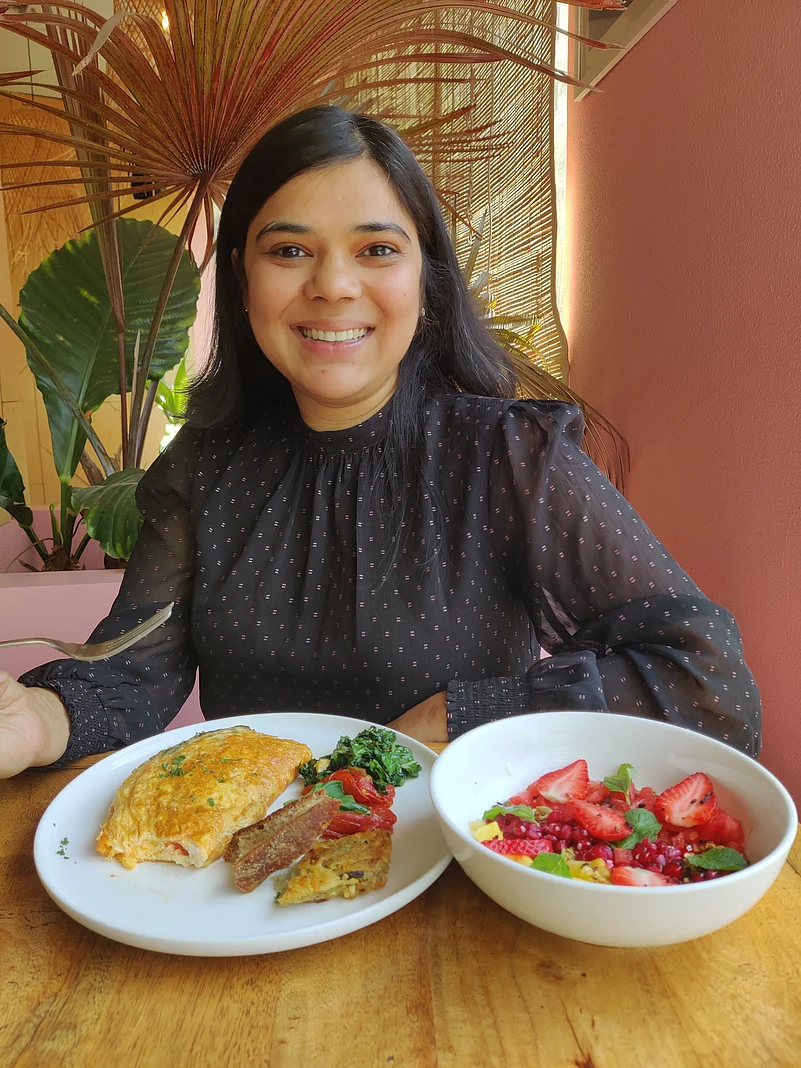She does the cooking, cleaning and she also looks after her children, her husband and her in-laws. This is the ideal image of a housewife that we have known and grew up with through generations. The word homemaker came to replace this age-old ubiquitous ‘housewife’ to make this role gender-neutral and also to acknowledge that household management is a full-time responsibility.
But the core definition of being a homemaker is still retained and restricted to handling household chores and performing a caregiving role. That is no longer true in a fast-changing world. In many cases, it never was. More and more women homemakers these days are playing a larger role in their families — be it earning additional income or playing an active role in formulating and executing financial planning for their families.
There is also a new-found realisation among people that given the pace of the new world that we live in, a household cannot function smoothly with the cliched demarcation of roles and responsibilities between men and women of the families. However, somewhere and somehow, the conversation on those changed roles has also been restricted to those women who go after their careers and those men who play an active role in the household management by partaking in chores and raising their children.
On the other hand, in a country like India, majority of women are still not employed outside the home, and hence fall in the category of homemakers. However, instead of conforming to the definition that has been assigned to them, they are actively changing that definition.

Bhawna Sharma, a homemaker who lives with her husband and daughter in Patiala, exemplifies this. Yes, she does cook, she does clean, and she does take care of her family. The same family also supports and assists her as she takes the lead in performing these roles. That is not all what her life and her contribution to the family is all about. She manages the family’s money, prepares the budget, plans investments, tracks the savings and re-adjusts them when need arises.
“It all started a few years back when I began going to the bank for initiating fixed deposits with our savings, and renewing them from time to time. My husband has long working hours and his work timings clash with the bank’s business hours. Hence, it made sense for me to take charge of activities that involved visiting the bank and other business establishments that have fixed working hours” she says.
It was then that Bhawna started taking interest in matters related to personal finance. “At the bank, some insurance agents and investment advisors used to approach me. I listened to them and take a mental note of investment options they talked about. After that I would come home and start looking for them online to better understand them,” she recalls.
It was only a matter of time then that she developed an understanding of different investment avenues and started taking bigger decisions about managing her family’s money. Today, she decides which asset class to invest in and how much allocation should be given to each asset class. “I keep reading and researching about the market and keep a close eye on how our investments are doing. We started with investing in mutual funds through the SIP route. When the markets fell last year, we made some lump sum investments in certain mutual funds, and even some direct equity. I am happy to say that those investments are doing well,” Bhawna says.
Bhawna’s story is not only of shattering stereotypes about what a homemaker contributes to her family, it also challenges the perception that investment matters in a household are reserved for men. Not only is she now managing the savings of the family, she is effective earning for them as well as her investments bear returns.
That’s not the only way that homemakers contribute financially to their families. The story of Urmila, a 41-year-old homemaker from Delhi, is among many such stories of mothers, wives, daughters and sisters who balance their roles of managing the household while going an extra mile to earn for their families as well. While single-handedly managing all the household chores every day, Urmila gives tuitions at her home to school students so she could take responsibility of paying for some of her family’s needs as well.
“Apart from managing daily chores, my mother manages the budget of the house and even earns for the family. From a pin to all the ration of the house, she has its accounts on the tips. By giving tuitions, my mother contributes to household expenses, and even my college fees,” says her daughter Prerna, a student at Delhi University.
The journey is different for each woman in a country like India where women have to strike a balance between their own aspirations and what the society expects, and sometimes demands, out of them. A woman who decides to let go of her career to work full-time as a homemaker, and her counterpart who gives her all to be a successful professional — they both hold equal value as long as it’s the woman who is making the choice. And then there are also those women who try to make the best of their circumstances — their stories are no less either.

Noida-based Anamika Agarwal quit her career as a teacher when her father died. For the next 13 days, she had to cook for a large number of people as rituals of her community dictated. She did not like cooking before that but it was during that time that she started looking for meaning in that activity of cooking for others. Now she has turned cooking into a small venture by the name of Anamika’s kitchen which she runs from her home, delivering home-cooked meals for birthday parties, small gatherings and so on.
“For me, cooking is about independence. Cooking is an activity which is taken quite lightly, something that is expected as a basic duty from most homemakers. In every household, there is a cook in a mother, a wife, a daughter. But for me cooking is something that lets me be financially independent, contribute to my family’s income while also allowing me to follow my passion,” says the 32-year-old who wants to prove to the world that women like her can handle household responsibilities while following their passion and being financially independent.
A homemaker is indeed not about turning a brick-and-mortar structure into a home but also about being an axis to run the family. A dental surgeon by profession, Neha Mathur left her practice to be a homemaker after she got married, as her husband travelled to different countries for work. She travelled with him and tried cuisines of different countries. Since she was always fond of cooking, she began to cook those recipes at home. And then she started documenting those recipes in her blog, Whisk Affair, and sharing them with the community. Praises rained on her from everyone. It didn’t take long for her to be a food consultant, despite remaining a homemaker.

“As I try new recipes in my kitchen almost every day, even my family is happy because they get to eat something unique and different. Both my husband and son are my favourite critics and all the recipes that get to my blog are approved by them. It’s a win-win for all of us. It is rightly said that ‘it’s not easy to challenge stereotypes, but society doesn’t change if you don’t start changing yourself first’. And here I am changing one of the most basic stereotypes of women by not just cooking at home but turning it into a well-paid profession. It is great that I can contribute to the house monetarily and have both the genders working equally to make it happen. My husband also supports me in growing Whisk Affair. It is all about working and growing together, to lead a happy and successful life. And that is what we believe at home,” she says.
The definition of homemaker is changing. But last year showed a different side when women who are working professionals and have limited hours to spend with their families got an opportunity to stay full time at home. Kanika Singhal, a 32-year-old resident of Ghaziabad, is one such woman who works as an HR manager at an IT firm. She calls work from home a pretty experience for her where she became a “part-time homemaker”. She calls working for a woman important as that gives her independence. “And when both partners in a relation are working, then it lets them not only to fulfil their duties but also let them live their dreams.”
Kanika, a mother of two, says that while even in the pre-Covid times, her family’s support played an important role, she did lack emotional connect with her children. “The lockdown allowed me to get more involved with my children. My role as a working woman was always a priority. But I never had to make a choice between career and family even after marriage. I never knew how it would be like to be a homemaker but the lockdown last year gave me a hands-on experience. I actively participated in household work and developed a more intimate love towards this part of my life,” she says.
Now that her professional life is getting back to normal, she feels things have changed for better. Now she takes out more time for her family and her children and finds more happiness in that.
With inputs from Sudhanshu Mishra































